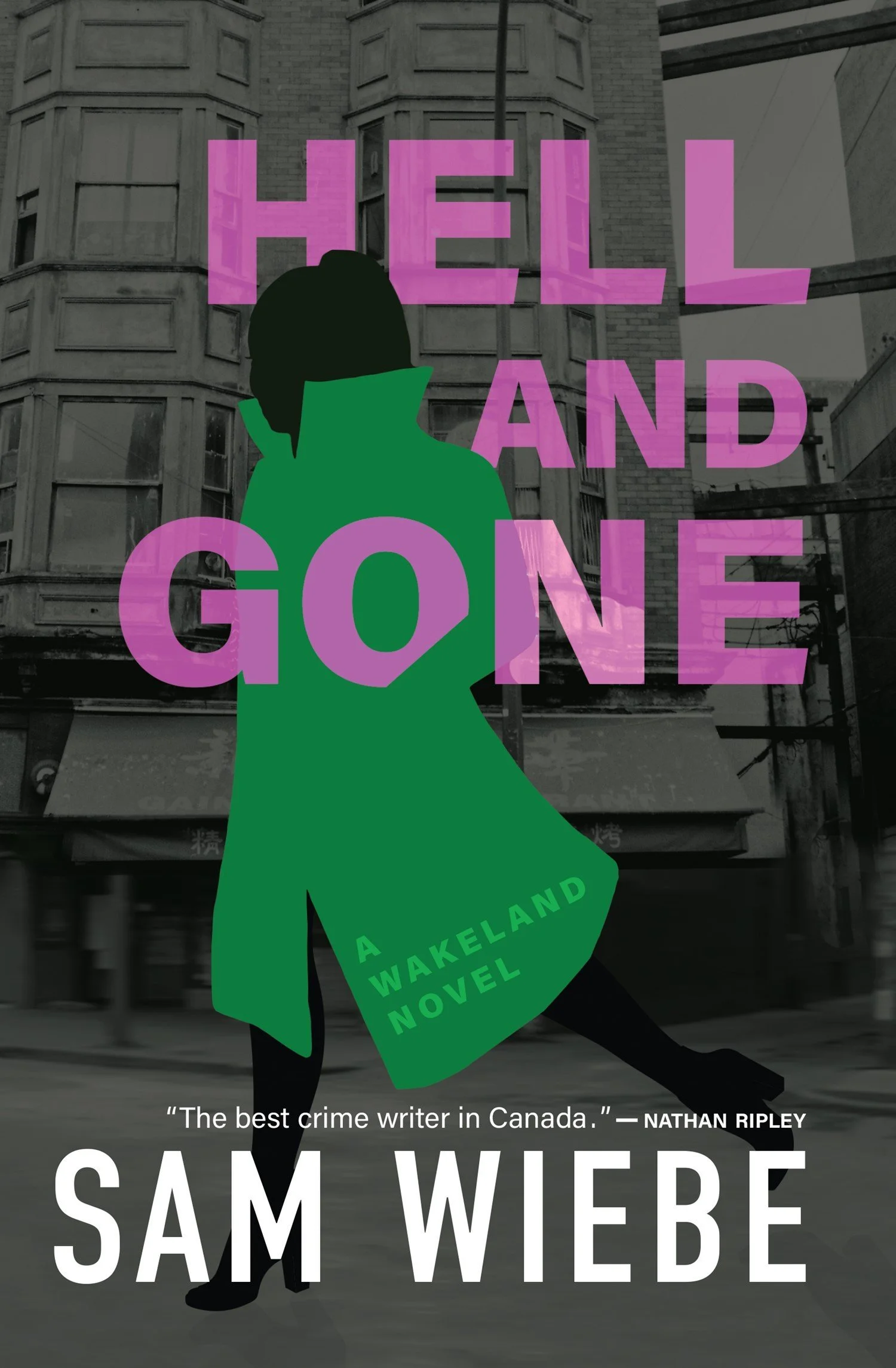Book Review : Sam Wiebe - Hell & Gone (2021)
Canadian author Sam Wiebe’s private detective character Dave Wakeland is a rather unique fellow. He’s not a conventionally pleasant character. He’s cagey and somewhat antisocial. It feels like he’s never quite honest about his feelings. One of the most intriguing aspects of the Wakeland novels is the threshold for his emotional stability. What will it take to throw him over the edge? The veil over this mystery is partially lifted in Hell & Gone.
In Hell & Gone, Dave Wakeland is the sole living witness to a public shooting that leaves several bystanders dead. No, really. The book opens on an act of such extreme violence, it leaves our protagonist psychologically torn. What the fuck happened? Who would shoot up Chinatown like this? Was it a hate crime or something more sinister and complicated? Cops, bikers and other interlopers are on Wakeland’s case about it.
If he wants to survive it (both literally and emotionally), Wakeland needs to solve this case.
(Not so) Sweet Emotion
I gotta keep it real: the first two chapters of Hell & Gone are some of the most engrossing material I’ve read in 2021. There is a scene in particular where Wakeland is applying first aid to a shooting victim in a street filled with cadavers that slayed the shit out of me. It would’ve been easy to fall into a moment of swelling emotion where characters reveal life altering information to one another, but it’s not the type of writer Sam Wiebe is.
See, Wiebe is a Hemingwayesque writer at heart. In his novels, emotion is rarely revealed through what is being said but rather with how it’s being said and what decisions are being taken. In the scene I’m referring to, Wakeland is going through the ABC of first aid. He’s doing what’s written in the manual. But the violence of the situation and the urgency of his reaction make it a powerful, transcendent moment in the series.
In a sense, Sam Wiebe’s writing is somewhat of an acquired taste because it isn’t exactly warm and evocative. It is a reflection of Dave Wakeland’s estrangement from his own emotions. He makes statements through action and decision making. It requires more of an active reading than suggested in order to fully bond with the investigator, but the intensity of Hell & Gone makes the exercise easier and more palatable than its predecessors.
The Old Plot vs Character Ordeal
While I really champion Hell & Gone for being Sam Wiebe’s most character driven novel so far, it doesn’t always gracefully keep its balance between the intricate mysteries and the moments where characters become larger than life and overtake the narrative. It never gets complicated to keep track of anything, but sometimes Wakeland has so much to do that he becomes a vessel for the intrigue rather than a complex human being.
This point will be moot for some readers who like imagining themselves trying to solve the mysteries of the novels they’re reading, but I’m not this kind of guy. Who solves the mystery is more important to me than the mystery being solved at all. Matter of fact, a series about a detective never solving any crime would be great, wouldn’t it? Hell & Gone is great, but it could’ve done with less subplots and more character moments, I think.
It’s difficult to give you a measuring stick for Dave Wakeland novels. They sometimes feel almost impressionistic with their cagey first person narrations. They’re not wisecracking like Chandler or Hammett. They’re expressionistic like Dennis Lehane’s. Wakeland’s an in-between which aims for originality and emotional accuracy: it feels the closest to what it would feel if you were in these situations yourself and no one else offers quite that.






